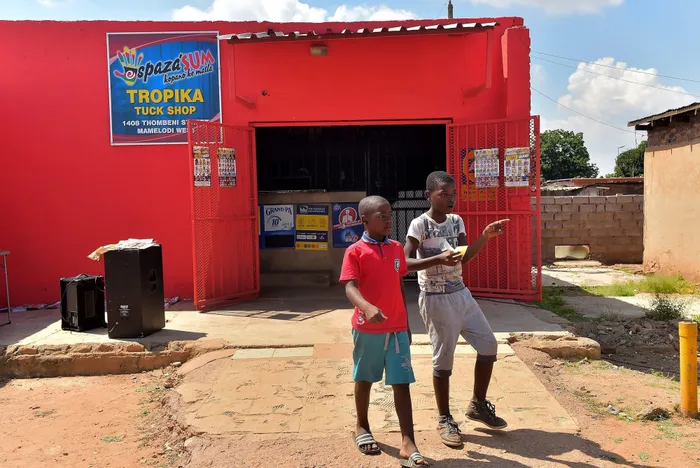
South Africa’s youth entrepreneurship story is not one of flashy tech start-ups alone. It is one of creativity, resourcefulness, and purpose. These stories unfold in spaza shops, converted garages, and street corners.
Image: Oupa Mokoena / Independent Newspapers
As we close of Youth Month, we’re reminded that the spirit of South Africa’s youth is as vital today as it was in generations past, with those who once fought for freedom paving the way for a new wave of young people who are now crafting their own futures through grassroots entrepreneurship and creating solutions that matter most to their communities.
In 2025, many young South Africans are not just chasing jobs - far from it. They are crafting real solutions to power cuts, water shortages, school dropouts, and gender-based violence. From rural villages to township streets, these youth-led enterprises are grounded in the lived realities of the communities they serve.
But for many, translating those impactful ideas into sustainable businesses remains difficult — even though support exists, from government agencies like NYDA and Sefa, access to these opportunities often remains a challenge. Formal funding processes often require documentation such as audited financials, tax clearance certificates, detailed business plans, and reliable internet access. These are not always readily available to youth operating from informal settings or in resource-constrained areas.
This is not to suggest that youth funds are ineffective or poorly designed, it is far from it. These efforts are commendable and essential. But there is a growing recognition that additional support mechanisms are needed to ensure that promising entrepreneurs, especially those in marginalised spaces can navigate and benefit from them. This is particularly true for young people whose businesses may not fit conventional models of scale or investment-readiness, but whose work is deeply impactful. A young man in Umlazi repairing household appliances using salvaged parts or a woman in Malamulele manufacturing affordable sanitary pads for schoolgirls may not present a traditional “scalable” model, but they are driving community-level impact where it matters most.
South Africa’s youth entrepreneurship story is not one of flashy tech start-ups alone. It is one of creativity, resourcefulness, and purpose. These stories unfold in spaza shops, converted garages, and street corners. Many of these young changemakers are not waiting for ideal conditions. As shared during the 2022 DSBD Roadshow, the sentiment was clear: “They say the money is there. But we don’t see it. We’re building with borrowed airtime and ideas.”
This Youth Month, we are invited to reflect on what meaningful support looks like. It is not just about increasing funding but about building environments where more young people can succeed. That includes community-based incubation, mobile support hubs, simplified compliance, mentorship programmes, and market pathways that embrace innovation in all its forms.
Just as the youth of 1976 demanded change in the classroom, today’s youth are asking for change in the economy not sympathy, but structural support that recognises and respects where they come from and what they are building.
As a nation, we don’t need to start over. We simply need to widen the doorway.

Tsakani Nkombyane, Programme Officer at 22 On Sloane.
Image: Supplied.
Tsakani Nkombyane is the Programme Officer at 22 On Sloane.
*** The views expressed here do not necessarily represent those of Independent Media or IOL.
BUSINESS REPORT